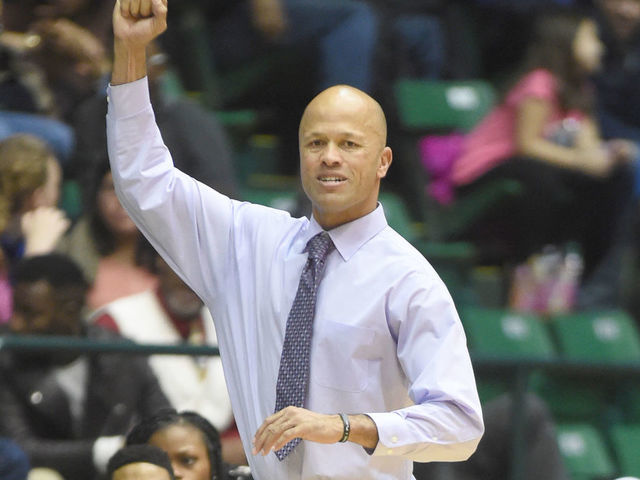 On Monday, January 7th, Tennessee State University President Dr. Glenda Glover presented a check for $50,000 to establish a scholarship endowment in her name as her “first act of business.”
On Monday, January 7th, Tennessee State University President Dr. Glenda Glover presented a check for $50,000 to establish a scholarship endowment in her name as her “first act of business.”
She says, in a The Tennessee Tribune interview, “I want our alumni and everyone to get involved in financially supporting our institution, so I am beginning the process with my contribution. I challenge each alumni chapter to match my gift or follow my lead in giving to TSU.”
During a meeting involving the school’s future, Glover named five areas of focus to move the university forward: Academic Progress and Customer Service, Fundraising and Partnerships, Diversity and Inclusion, Shared Governance, and Business Outreach.
Glover says she will be “a president for all,” and one thing that seems to foster a prominent future for people is making sacrifices.
In my blog with the Huffington Post, entitled, “The Lack of Stability of Historical Black Colleges and Universities,” I mentioned how leaders make tough sacrifices, even if the majority are against.
When you walk the campuses of a HBCU, with the exception of a few, you see abandoned buildings, old buildings and scraps of vitality from the past. The campuses of HBCUs look unorganized, not because of a lack of effort from school officials, but because of the lack of financial support and school enrollment. The churches that these institutions were started out of had vaporized into a metaphysical world that places profound statements over rigorous actions. Moreover, prominent alumni from HBCUs, who fetch absurd surplus of financial revenue, withdraw from making contributions that would drive them to the top of the educational ladder.
When sacrifices are made for historically black institutions from leaders, stake-holders, graduates and community leaders, plan to see yet another emergence of HBCUs.
There is a need for a re-emergence of HBCUs because of the state of the nation we live in. If we look at why these institutions are in operation and what purpose they serve in our communities, we will find profound ideas: Morehouse College is committed to training leaders who will change their communities, the nation and the world; Fisk University produces graduates from diverse backgrounds with the integrity and intellect required for substantive contributions to society; Tennessee State grows and develops students personally, conjuring appreciation to cultural diversity, embodying a sense of civic and social responsibility, and making well prepared to fulfill their life goals and; American Baptist College educates, graduates and prepares predominantly African American students for leadership, service and social justice in the world.
 On the other hand, better known (and better off) colleges like Harvard University, according to their website, mission statement differs: to strive to create knowledge, to open the minds of students to that knowledge, and to enable students to take best advantage of their educational opportunities. The college encourages students to respect ideas and their free expression, and to rejoice in discovery and in critical thought; to pursue excellence in a spirit of productive cooperation; and to assume responsibility for the consequences of personal actions.
On the other hand, better known (and better off) colleges like Harvard University, according to their website, mission statement differs: to strive to create knowledge, to open the minds of students to that knowledge, and to enable students to take best advantage of their educational opportunities. The college encourages students to respect ideas and their free expression, and to rejoice in discovery and in critical thought; to pursue excellence in a spirit of productive cooperation; and to assume responsibility for the consequences of personal actions.
Unlike PWIs, HBCUs trigger communal involvement in a chaotic world. It seems though HBCUs teach their students to tackle our countries most perplexing issues; gun violence, sexuality, poverty, capitalism, sexism, racism and many other issues. [While PWIs possibly feeds into students’ psyche to produce arrogance, transcendence, oppressors, cannibalistic competitors and inactive philosophers more so than less.]
Thus, if there were to be any change in our world, would it come from students who graduate from the Yale’s and Harvard’s or would it be from the Tuskegee’s and Dillard’s?
In order for our world to become better, we must support all of our HBCUs that jump-start leaders to become agents of change.
HBCU Buzz is the Leading Source of HBCU News, and Most influential brand in the HBCU Community. Like ‘the Buzz’ on Facebook and follow us on Twitter.



